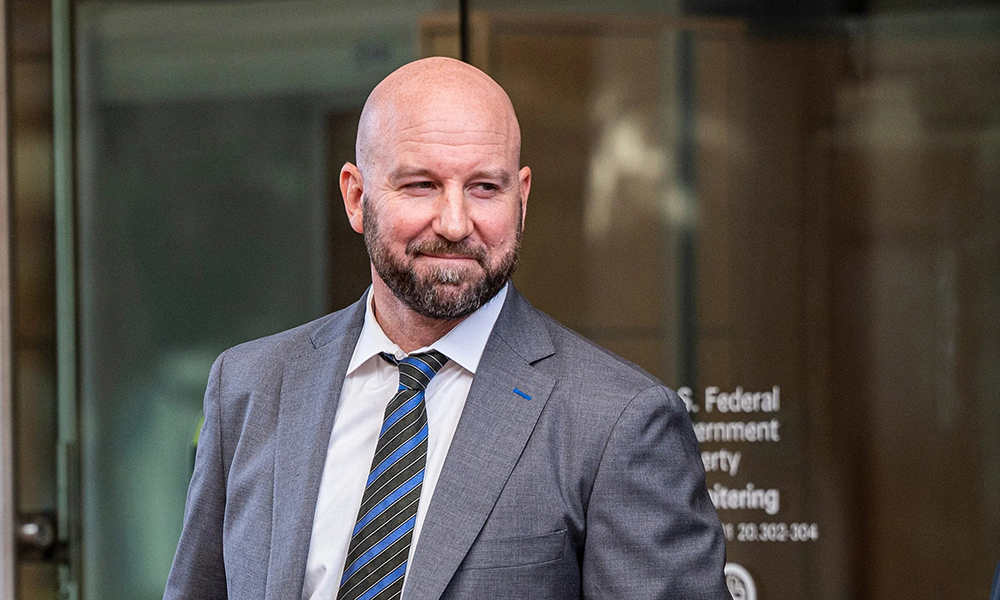
Meta首席技术官安德鲁·博斯沃思表示,公司的员工福利和慈善事业可能“拖累公司发展”。
一家公司,尤其是收入数百亿美元的公司,为员工提供他们期待的福利,什么时候会拖累公司的利润?Meta首席技术官安德鲁·博斯沃思表示,当公司利润大幅下滑时。
博斯沃思(又被称为“Boz”)在个人博客上最近发文,表达了对Facebook创立初期的怀念。当时,由于资源不足和时间紧张,他们别无选择,只能高度专注于产品和新目标。
博斯沃思在2021年担任Meta首席技术官,负责其元宇宙业务。他之前也曾抱怨过类似问题。Verge在1月报道称,博斯沃思曾在内部信息中表示,公司“通过增加员工解决了太多问题”,导致公司很难保持专注和实现公司的目标。
他在名为《专注》(Focus)的博文中抱怨,他发现Meta偏离了核心使命和目的,会“拖累公司发展”,包括公司支持的非营利组织、员工福利和小众产品功能等耗费了时间和资源。
他写道:“我们每次像这样偏离自己的核心竞争力,从局部来看,或许能够带来积极的投资回报。但我认为从整体来看,结果是负面的。这样的情况已有数百次,每次单独来看都是合理的,但却耗费了人力和资金,并且它们的比重开始超过核心业务,拖累公司发展。”
Meta在11月裁员约11,000人,同时其CEO马克·扎克伯格对错误估计疫情期间的财务收益和过快扩张公司业务和员工队伍承担了责任。
然而,博斯沃思以“回首往事”的方式批评Meta的现状和业务重心,其核心并不是公司重要的文化福利和项目出现错误,而是公司的策略问题。
作者鲍里斯·格鲁斯伯格、杰里迈亚·李、杰西·普利斯和郑幼如(音译)曾为《哈佛商业评论》(Harvard Business Review)撰文称,策略“为企业目标提供了正式的逻辑”,并为企业员工提供了方向。而文化“透过价值观和信念来传达目标,并透过共同的假设和群体规范,来引导活动。”
如果员工有某种强烈的要求,在这方面进行投资可能是有价值和必要的。倦怠、消极、不开心和不满意的员工会告诉你一种欣欣向荣的良好公司文化的重要性。
博斯沃思写道:“在某个时期,我们有足够的资金进行投资,不需要立刻做出取舍。如果有许多员工需要某种福利,满足员工的需求可能成本效益更高。”
公司文化往往令人难以捉摸。文化是无形的,是一种归属感和共同使命感。员工想要且需要感觉他们所服务的公司能够支持他们,无论提供福利还是津贴,公司有明确的信念,清楚其在全世界的地位,而且有他们所支持的事业。
目前尚不确定Meta每年向哪些慈善事业捐出了多少资金,但博斯沃思表示,他对Meta慈善事业的关注并不意味着建议公司改变立场,或者完全停止慈善捐助,而是因为在他看来,公司的慈善事业是“一个很好的例子,表明一项纯粹的善事”随着规模扩大,会增加公司的成本。
博斯沃思表示,如果Meta像其他公司一样,现在开始做减法,“当公司删除小众功能时,通过这些功能获得的客户可能会不满。如果公司取消员工喜欢的福利,员工也可能会不满。”
但他认为,这样做必不可少,目的是“保持专注和分清轻重缓急,因为试图取悦所有人的结果众所周知”。(财富中文网)
翻译:刘进龙
审校:汪皓
Meta首席技术官安德鲁·博斯沃思表示,公司的员工福利和慈善事业可能“拖累公司发展”。
一家公司,尤其是收入数百亿美元的公司,为员工提供他们期待的福利,什么时候会拖累公司的利润?Meta首席技术官安德鲁·博斯沃思表示,当公司利润大幅下滑时。
博斯沃思(又被称为“Boz”)在个人博客上最近发文,表达了对Facebook创立初期的怀念。当时,由于资源不足和时间紧张,他们别无选择,只能高度专注于产品和新目标。
博斯沃思在2021年担任Meta首席技术官,负责其元宇宙业务。他之前也曾抱怨过类似问题。Verge在1月报道称,博斯沃思曾在内部信息中表示,公司“通过增加员工解决了太多问题”,导致公司很难保持专注和实现公司的目标。
他在名为《专注》(Focus)的博文中抱怨,他发现Meta偏离了核心使命和目的,会“拖累公司发展”,包括公司支持的非营利组织、员工福利和小众产品功能等耗费了时间和资源。
他写道:“我们每次像这样偏离自己的核心竞争力,从局部来看,或许能够带来积极的投资回报。但我认为从整体来看,结果是负面的。这样的情况已有数百次,每次单独来看都是合理的,但却耗费了人力和资金,并且它们的比重开始超过核心业务,拖累公司发展。”
Meta在11月裁员约11,000人,同时其CEO马克·扎克伯格对错误估计疫情期间的财务收益和过快扩张公司业务和员工队伍承担了责任。
然而,博斯沃思以“回首往事”的方式批评Meta的现状和业务重心,其核心并不是公司重要的文化福利和项目出现错误,而是公司的策略问题。
作者鲍里斯·格鲁斯伯格、杰里迈亚·李、杰西·普利斯和郑幼如(音译)曾为《哈佛商业评论》(Harvard Business Review)撰文称,策略“为企业目标提供了正式的逻辑”,并为企业员工提供了方向。而文化“透过价值观和信念来传达目标,并透过共同的假设和群体规范,来引导活动。”
如果员工有某种强烈的要求,在这方面进行投资可能是有价值和必要的。倦怠、消极、不开心和不满意的员工会告诉你一种欣欣向荣的良好公司文化的重要性。
博斯沃思写道:“在某个时期,我们有足够的资金进行投资,不需要立刻做出取舍。如果有许多员工需要某种福利,满足员工的需求可能成本效益更高。”
公司文化往往令人难以捉摸。文化是无形的,是一种归属感和共同使命感。员工想要且需要感觉他们所服务的公司能够支持他们,无论提供福利还是津贴,公司有明确的信念,清楚其在全世界的地位,而且有他们所支持的事业。
目前尚不确定Meta每年向哪些慈善事业捐出了多少资金,但博斯沃思表示,他对Meta慈善事业的关注并不意味着建议公司改变立场,或者完全停止慈善捐助,而是因为在他看来,公司的慈善事业是“一个很好的例子,表明一项纯粹的善事”随着规模扩大,会增加公司的成本。
博斯沃思表示,如果Meta像其他公司一样,现在开始做减法,“当公司删除小众功能时,通过这些功能获得的客户可能会不满。如果公司取消员工喜欢的福利,员工也可能会不满。”
但他认为,这样做必不可少,目的是“保持专注和分清轻重缓急,因为试图取悦所有人的结果众所周知”。(财富中文网)
翻译:刘进龙
审校:汪皓
Meta CTO Andrew Bosworth says a company's perks and philanthropy can "create drag."
At what point as a company—particularly one with tens of billions of dollars in revenue—does giving employees what they want become a drag on the bottom line? It’s a slippery slope, according to Meta Chief Technology Officer Andrew Bosworth.
In a recent post on Bosworth’s—also referred to as “Boz”—personal blog, the tech executive longed for Facebook’s start-up days when resources and time were in such short supply they had no other choice but to be incredibly focused on the product and the next goal ahead of them.
Bosworth, who became Meta’s chief technology officer tasked with overseeing its metaverse push in 2021, has bemoaned similar issues before. The Verge reported in January that Bosworth said in an internal message that the company had “solved too many problems by adding headcount,” making the ability to focus and get things accomplished difficult.
In his post, titled “Focus,” he lamented what he sees as deviations in Meta’s core mission and purpose that “create drag” on the company: the nonprofits the company supports, employee perks, and niche product features that take time and resources.
“Each individual digression from our core competency like this can probably be measured positively on ROI when considered locally,” Bosworth wrote. “But I believe they collectively add up negatively. There are hundreds of them, each individually reasonable, but they take people and money and altogether they start to outweigh the core and create drag.”
Meta, in November, laid off roughly 11,000 employees as CEO Mark Zuckerberg took the blame for miscalculating the financial boon during COVID and expanding Meta’s businesses and workforce too rapidly.
However, at the heart of Bosworth’s “back in my day” criticism of Meta’s current state and focus isn’t the fault of otherwise important culture perks and programs, but strategy.
Strategy, authors Boris Groysberg, Jeremiah Lee, Jesse Price, and J. Yo-Jud Cheng wrote for the Harvard Business Review, “offers a formal logic for the company’s goals and orients people around them.” Culture, meanwhile, “expresses goals through values and beliefs and guides activity through shared assumptions and group norms.”
If employees are clamoring for something, it’s probably a worthwhile and necessary investment. Any burnt out, disengaged, unhappy, and unsatisfied worker could tell you the importance of a good and thriving company culture.
“At some point we had enough money to do it without making an immediate trade-off. And if so many employees wanted it, maybe it was more cost effective just to do it,” Bosworth wrote.
Culture within a company is elusive. It’s the intangibles, a sense of belonging and common purpose. Employees want and need to feel they’re working for a company that supports them, whether that be perks or benefits, and a company whose beliefs and place in the world overall are clear and something they can get behind.
It’s not clear just how much Meta devotes to philanthropy each year, or where it goes, but Bosworth’s focus on Meta’s philanthropy, he says, wasn’t meant to suggest the company change it’s stance or completely divest itself of charitable giving, but because it represents in his view “an example of what seems like an unalloyed good” that racks up costs as it scales.
If the company began snatching things away now, as some other companies have been, “customers you acquire for some niche feature will be outraged when you remove it. And employees might be upset to hear that a perk they love is going away,” Bosworth says.
But he believes it might be necessary in order to “focus and prioritize, because attempting to please everyone has a well-publicized result.”






